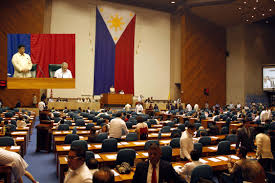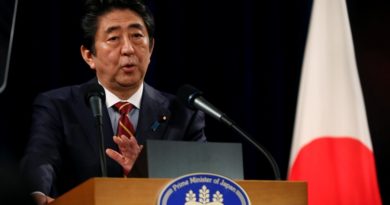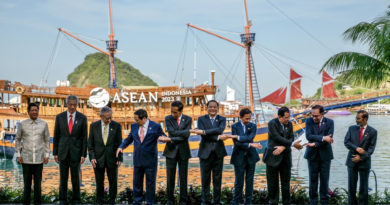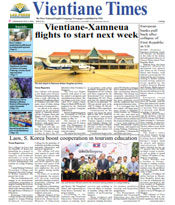OP ED COLUMN: OPINION ON PAGE ONE- GMA delivers a ‘brilliancy’ – By Francisco S. Tatad
BETWEEN now and the end of the present Congress, there can be no time left to work on any revision of or amendment to the 1987 Constitution. This requires the two Houses of Congress to sit together as one, and to vote separately on every proposal. Between now and December, they would be too busy trying to pass the P3.757 trillion budget for fiscal year 2019, assuming the existence of a daily quorum; until next May, some of the 24 senators, and most, if not all, of the 297 congressmen would be on the campaign trail.
Speaker Gloria Macapagal Arroyo knows this. Despite this grim reality, the Speaker and 21 of her House colleagues have filed a draft revision of the Constitution proposing a shift to the federal system, lifting current term limits and deleting the Vice President’s name from the constitutional line of presidential succession. This proposal is after President Rodrigo Duterte’s heart, but it may be doomed to fail. If the sole intention is to please DU30, regardless of what happens to the proposal, this is it. One can call it a political “brilliancy,” a class act on the part of the former president.
The Constitution, as I have tirelessly pointed out in this column, allows the president no public role in proposing any constitutional revision or amendment. DU30’s “federalism” seeks to “balkanize” rather than consolidate the unitary Philippine republic; it has no reason for being, unless the proposal seeks to incorporate Sabah and the Spratlys into the new Federal Republic of the Philippines. All of DU30’s economic advisers have warned it would wreck the nation’s economy because of its added cost; if there’s anyone in government who speaks the language of the economic managers, it is the economist Mrs. Arroyo, and she has not said they are wrong.
– SPACE RESERVE FOR YOUR ADVERTISEMENT –
.
Abolishing the vice president
Rightly or wrongly, fairly or unfairly, DU30 has a terribly low opinion of vice president Leni Robredo, whose 2016 election is being contested before the Presidential Electoral Tribunal (PET) by former senator Ferdinand ‘Bongbong’ Marcos Jr. Unless the presidential system is being abolished in favor of the parliamentary system, the proposal to remove the vice president from the line of presidential succession, and to replace him/her with the senate president, has no rational basis. It may be grounded on political prejudice against its incumbent holder, but it is not supported by any sound constitutional or political principle.
The present situation is not the same. DU30 could rant against Robredo all he wants, and even succeed in ousting her, but he cannot allow his personal and political prejudice to infect the Constitution. Should Bongbong Marcos win his protest, Leni would have to step down, but if the proposed new law on succession prevails, Bongbong would then become a vice president without official duties and without the right to succession. Even if nothing happens to his protest, Leni would be out of office by 2022, and the next vice president would still have no official duties and no right to presidential succession.
It was therefore necessary that the Arroyo camp authorize Majority Leader Nonoy Andaya, who like Robredo hails from Camarines Sur, to withdraw the anti-Robredo proposal. The message has been delivered — GMA has sufficiently demonstrated that she fully supports DU30 in everything he wants to do. And through Andaya she has succeeded in correcting an obvious error without telling DU30, to his face, that he was dead wrong. This is why I say her filing of her draft was a brilliancy, a “class act” that’s not easy to imitate. She has morphed into a master politician.
Mrs. Arroyo ends her last term as congresswoman from Pampanga on June 30, 2019. Unless she runs for the Senate and wins, she will be out of elective office by then. She could, if she likes, accept a Cabinet appointment after that, but there’s the risk of the rest of the Cabinet listening to her rather than to the President during and after Cabinet meetings.
– SPACE RESERVE FOR YOUR ADVERTISEMENT –
.
Killing ‘federalism’ gently
As for DU30’s proposal to shift to the inverted federal system, this will die a natural death if and when the Congress, as a constituent assembly, fails to enact it before its 2019 adjournment. The rule is that all legislative proposals that remain unacted upon during the last session of a particular Congress are buried in the Archives, never to be touched again, unless revived later in the next Congress as a totally new proposal.
But after June 30, 2019, it is reasonable to hope that a new set of realities would have set in. The new Congress might have added a few more independent voices on the floor, and DU30, if he continues to be “cancer-free” as his special presidential assistant Bong Go has tried to assure everyone, may have other priorities and preoccupations.
If and when that happens, we should all be grateful to Mrs. Arroyo for her proposal which had pleased the strongman but in the end failed to prosper. This, however, should not end or deter our effort to cure the basic flaws in our Constitution. This should not replace our search for the right men and women who should run the nation’s affairs — we should be doing this right now — but we should now remove all the atrocities that have been inflicted by all sorts of “do-gooders” upon our Constitution.
– SPACE RESERVE FOR YOUR ADVERTISEMENT –
.
Fundamental choices
We should now make the correct fundamental choices for the society we want and need to become. Exactly what form and structure of government do we need to deliver the desired outcome? Right reason and sober thinking, not ideology or reckless sloganeering, should rule.
Whether we should be a unitary republic or a “federal union” is already a settled question. Although we are an archipelago of over 7,000 islands, we have long opted to become a unitary state of over 300,000 square kilometers. Unless we include Sabah at the southern end, and the Spratly islands off Palawan and the neighboring littoral areas, “federalism” is simply out of the question. We have no separate or independent territories anywhere to “federalize.”
To carve the unitary state into 18 autonomous federal units, as proposed by the unconstitutionally created constitutional consultative committee on “federalism,” is to “balkanize” the unitary state, like the former Yugoslavia, which has disappeared from the map. The idea is “null and void ab initio,” to use Solicitor General Jose Calida’s infamous phrase, which has become the basis of two of DU30’s most abominable decisions.
.
– SPACE RESERVE FOR YOUR ADVERTISEMENT –
.
The parliamentary option
It would not be wrong to reexamine the form of government for the next generations of Filipinos. Is the presidential system working or do we need to shift to parliamentary government? We have heard all the arguments before. They seem to tilt in favor of the parliamentary system. DU30’s unconstitutional excesses lend even greater strength to the argument. The most potent argument is that until now we have not learned to conduct a truly honest and credible presidential election. All our elections from 1986 onward have been flawed, and for the most part have produced de facto presidents and senators. DU30’s own election has been flawed by the unresolved allegations of cheating in the vice-presidential contest.
We need to downsize our elections. The whole nation is required to choose a president, a vice president and senators from a set of candidates whom the voters have only heard of, but know nothing about. In a parliamentary system, the voters just vote for a member of parliament (MP) for their district; then the elected MPs choose the prime minister. Cheating could be regulated within the parliamentary districts, and there can be no cheating in choosing the prime minister.
At present, the elections are “supervised” by the Commission on Elections. Their personnel, with the rarest exceptions, are entirely corruptible, and they have entrusted the conduct of the voting and the counting of votes to Smartmatic, a foreign election provider, which has its own agenda, and can equally be suborned by corrupt politicians. On top of that, we have a political class whose first and last agenda is to be in power by whatever means possible.
We have no political parties to guarantee good government: most candidates are self-nominated with the help of crooked opinion surveys. National candidates require enormous resources to campaign. On my two successful senatorial runs, in 1992 and 1995, I spent not more than P3 million at first, and a little more than P7 million on my reelection, while some candidates spent P200 million to P300 million each and lost. I have always believed that no candidate should spend more than they expect to earn from their jobs; otherwise, one is already corrupted even before one’s first day in office.
Downsizing and other reforms
Even if we do not shift to parliamentary government, there can be no argument against downsizing our elections. There are other reforms. Should the presidential system stay, we need to make sure that in the next election, a vote for the presidential candidate of one party is counted as a vote for his or her running mate, and that the current term limits are abolished. The current DU30-Robredo situation should be the last case of its kind, and we should be able to finally abolish term limits. Intended as a reform to “democratize access to public office,” term limits have caused the insane proliferation of political dynasties, as the wife, son or daughter rushes in to replace a politician who is being termed out. This has made politics the nation’s most lucrative family business.
 All photographs, news, editorials, opinions, information, data, others have been taken from the Internet ..aseanews.net | [email protected] |.For comments, Email to :D’Equalizer | [email protected] | Contributor
All photographs, news, editorials, opinions, information, data, others have been taken from the Internet ..aseanews.net | [email protected] |.For comments, Email to :D’Equalizer | [email protected] | Contributor









